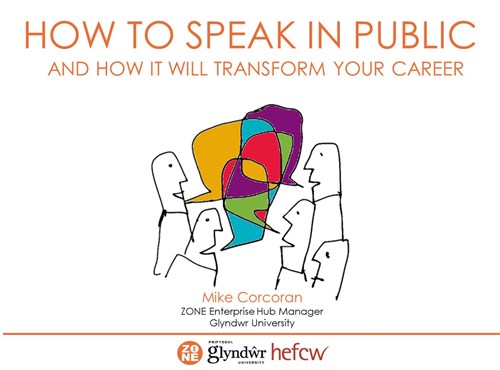Group Size
?
1.) Small group (teams of 4-6)
2.) Individual Task
3.) Large Group
4.) Any
Large Group, Any
Learning Environment
?
1.) Lecture Theatre
2.) Presentation Space
3.) Carousel Tables (small working group)
4.) Any
5.) Outside
6.) Special
Lecture Theatre, Presentation Space
QAA Enterprise Theme(s)
?
1.) Creativity and Innovation
2.) Opportunity recognition, creation and evaluation
3.) Decision making supported by critical analysis and judgement
4.) Implementation of ideas through leadership and management
5.) Reflection and Action
6.) Interpersonal Skills
7.) Communication and Strategy
5Reflection and Action
7Communication and Strategy
Objective:
Introduction:
In the working world, engineers are required to work with numerous stakeholders, from their own sector and from others, based locally, nationally and internationally. Engineering students will find themselves in many interview and presentation scenarios at the seek employments throughout their career, and clarity in communication will be essential in all areas of their professional practice. To that end, skills in public speaking, presenting and effective communication are essential.
An hour long session was run for a group of approximately 20 first year engineering students at Glyndwr University (studying on the Renewable Energy and Sustainable Technologies BEng programme), as an introduction to these skills, to be built on and consolidated throughout the rest of their time at the University.
The session formed part of a larger programme of guest speakers and practical workshops for the students (See How to Guide on Guest Speakers), designed specifically to give the students skills for employability and self-employment, and a greater appreciation of the real world context for their studies. It was delivered by the University’s ZONE Enterprise Hub Manager, on the invitation of the course tutor.
Activity:
The session followed the format which can be found in the ‘Workshop - How to Speak in Public’ How to Guide.

The students began the session with an introduction to the themes which would be covered, namely; how to structure a presentation, how to use tools effectively; how to present clearly; how to control and manage nerves, and how to deal with questions.
A brief discussion initiated the session, whereby students offered their thoughts on why public speaking skills were relevant in their sector, and how they might employ them in the future. From here, each of the themes above was covered in turn (with discussion following the pattern as outlined in the How to Guide).
At each stage, examples were chosen which were appropriate to the audience in hand. For example, in discussing structure and tools, a presentation on solar power was considered, and in discussing use of the appropriate language, thought was given to how an engineer would discuss the same technical point, with various expert and non-expert clients.
At the end of the one hour session, the key themes covered were re-capped, and students were offered the opportunity to ask questions, and directed to further support, links and reading if they wished to explore the issues further.
Impact:
Though the session was limited to one hour only, it still made a valuable impact upon the students. Through initial discussions, students had a clear understanding of the purpose of the session, and its direct relevance and appropriateness to them.
As new undergraduates, many had limited experience of presentation and interview environments, and so the session was timely, giving a broad overview to key points, with clear direction on how to consolidate what was learned. However, the lasting impact of the session will be sustained if the students are offered continued opportunities to explore, hone and develop these skills in a variety of simulated and real-world environments.
Learner outcome:
Immediately after the session, students reported feeling more relaxed about public speaking, more confident, and better equipped going forward. Feedback comments included;
“Very useful”
“Very good. Gained knowledge to help for future presentations.”
“Really good presentation. Well structured, paced, and encouraged audience participation.”
“Good presentation on presentation.”
“Great presentation; well prepared, greatly delivered, well explained.”
“Very informative. Thank you!”
Resources:
References: